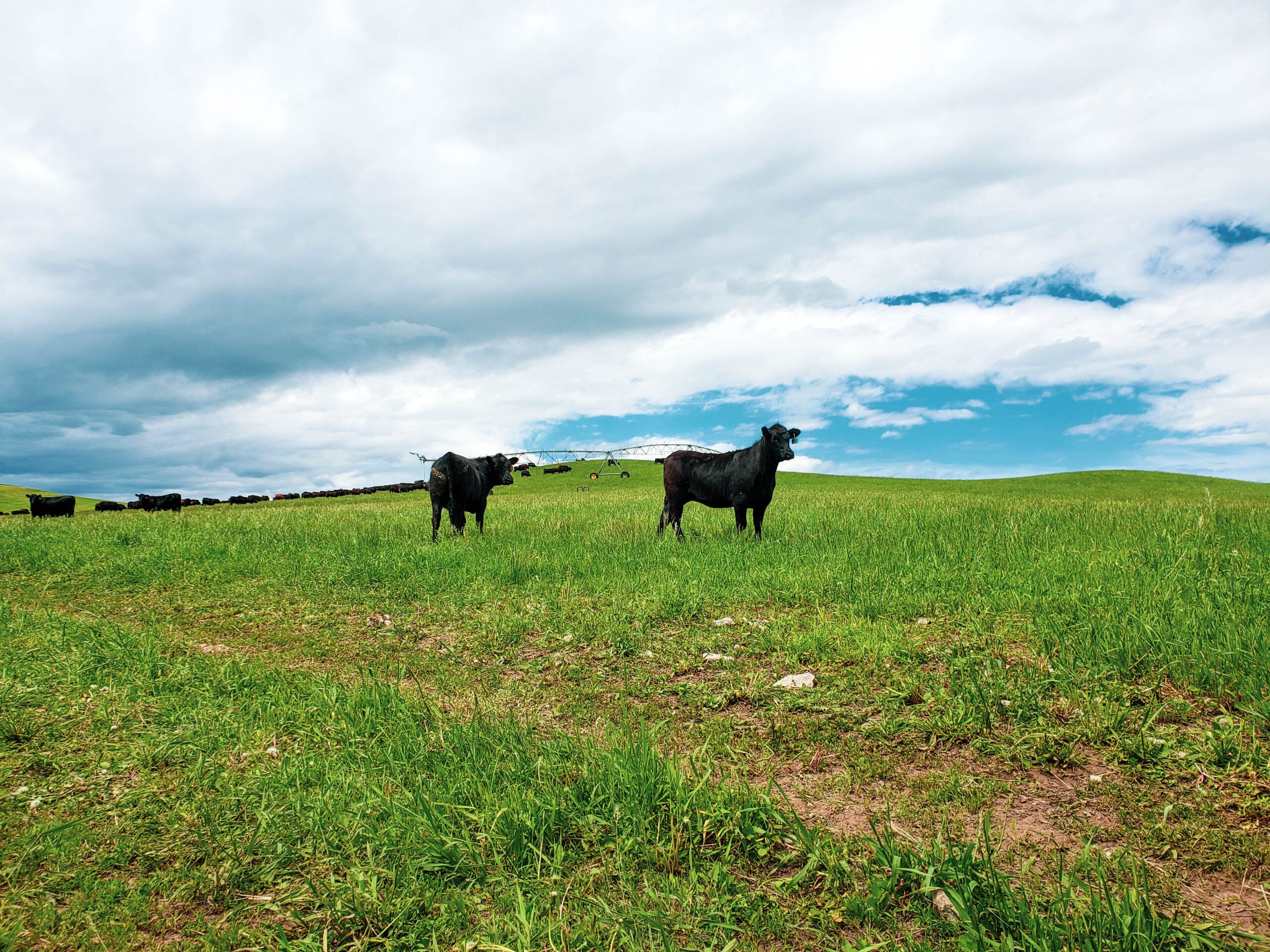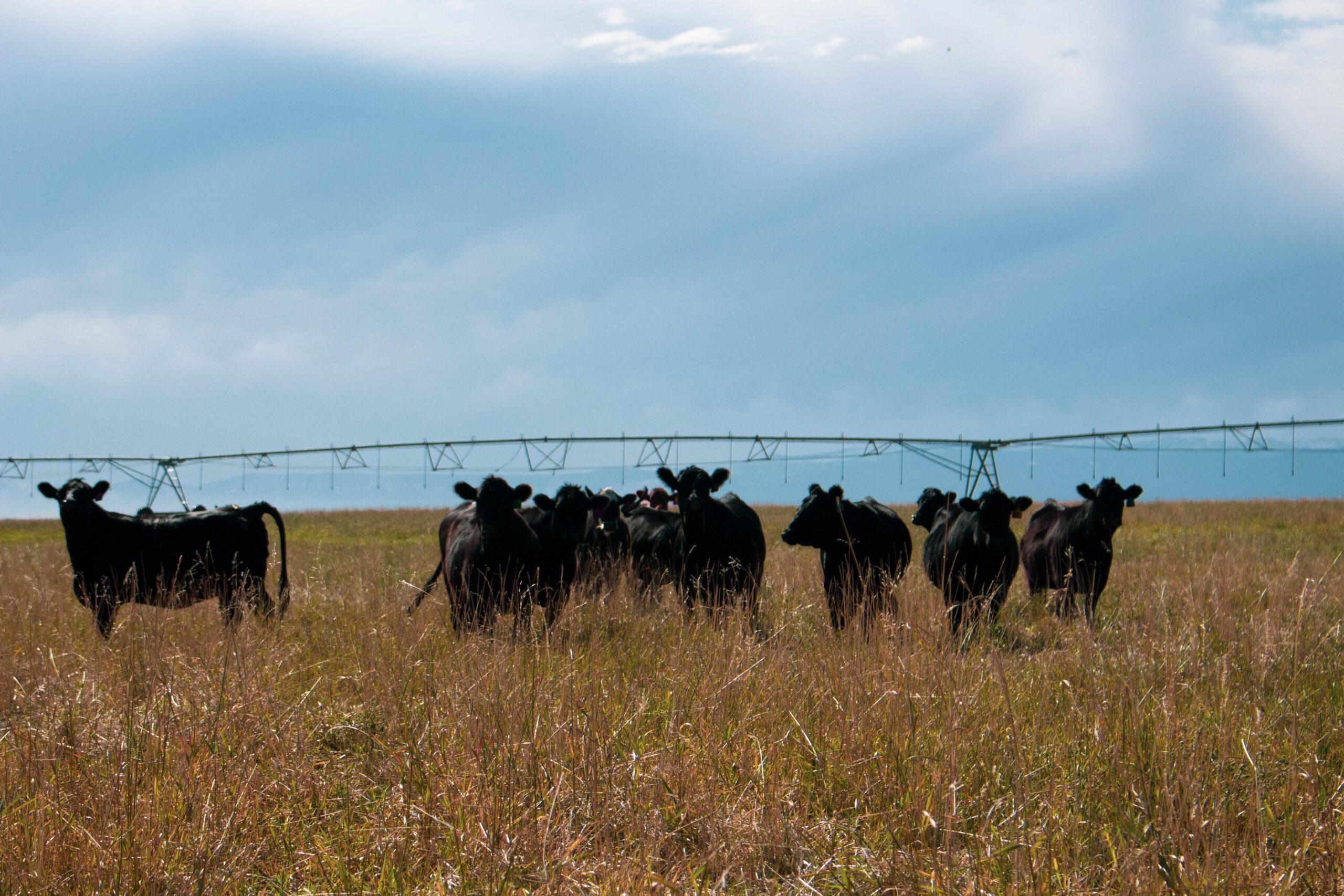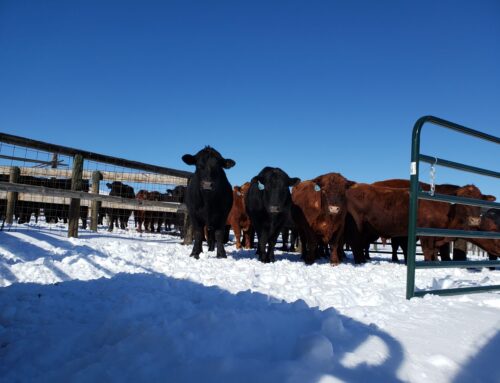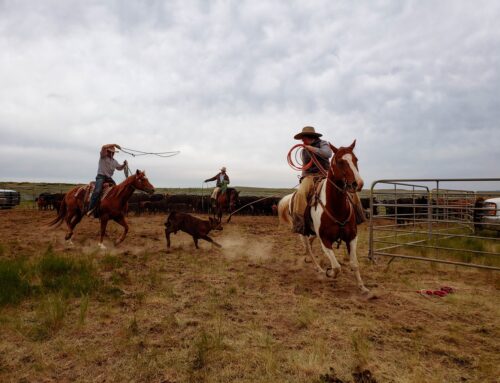The threat of climate change caused by methane emissions is a real concern right now. It doesn’t take any time at all watching the news or browsing social media before you start to hear about how we need to change the way we live and the way we eat, or the earth will be destroyed before we can pass it on to our grandkids. Bill Gates even wrote a book detailing some of the changes that he believes that we should make. That leaves the question: are all these opinions based on evidence?
Even if you think that the concern is overblown, it’s something worth talking about in the beef industry. Whether you just buy beef at the grocery store or you produce it, you should be aware of the actual environmental impact of beef production caused by methane emissions so that you can make evidence-based decisions.
Sustainability is defined as the “ability to be maintained at a certain level” and because we love our way of life it is worth looking at whether this is something that we can maintain. We all want to take good care of the earth and our natural resources, but is stopping beef production the answer? I’m going to argue that it’s not. Not only is the evidence different than you might have heard, but we also get a wide array of useful products from cattle.

How Do Cattle Release Methane?
It’s not any surprise that cattle can digest food that humans cannot. They do this by fermenting partially digested food in a compartment of their stomach called their rumen. This converts the feed from plant-matter that would otherwise be non-digestible into feed that they can use to stay healthy and grow. This method of digestion means that they can digest food that would otherwise go to waste (7).
However, this fermentation does release some byproducts, one of which is methane. The cows belch the methane out and it is released into the atmosphere.
What is Beef’s Carbon Footprint?
Cattle do release methane, but the carbon that is released into the atmosphere by cattle is not the same as the carbon released into the atmosphere by fossil fuels. Cattle put biogenic carbon back into the atmosphere, which only stays in the atmosphere for about 10 years (2,3). The carbon that people are really worried about is the carbon that is released through fossil fuels. This carbon takes closer to 1000 years before it is removed from our atmosphere (3).
Biogenic carbon in the methane that cattle release is converted to CO2 in the lowest level of the atmosphere. After it’s converted to CO2 it is available for plants to use it for photosynthesis. At this point it’s effectively fixed and it is no longer a concern (3).
Research is showing that the amount of methane in the atmosphere is increasing, and this is something to pay attention to. However, cattle are not the culprit. Cattle numbers in the US have been steady or declining since 1975, and the emissions per unit of product have been going down since the 1990s (3,5). These studies are considering more efficient cattle that consume more feed, and they are still finding that methane emissions from cattle are decreasing (3).
If you look at all the greenhouse gasses that are released through beef production, including those that come from producing feed for the cattle, fuel, and electricity, they only comprise 3.7% of the US’s greenhouse gas emissions (2). With these numbers, it’s hard to believe that switching everyone in the US over to synthetic beef would make much of a difference at all.

Efficiency in the Beef Industry
Beef producers in the US are also highly efficient. We produce 18% of the world’s beef with only 8% of the world’s cattle (4). We utilize 99% of every carcass to produce not only beef but products including leather, shampoo, insulation, and glass (1,4). Without cattle, we would need to find other sources for these products. This would take up other resources that may not be available.
The carbon footprint from US beef is also 10-50 times lower than other countries (2). This does not fit with Bill Gates claim that all rich countries should switch to 100% synthetic beef (8). We’re using available technology to improve over time and to be as efficient as possible.
In the US, cattle typically spend two-thirds of their life grazing on rangeland that is entirely unsuitable for growing crops (4). If we stopped producing beef, most of this land could only be used by wildlife, and we’d be missing out on a wonderful source of protein in our diets. Cattle take grass that we have no real use for and turn it into a health food. They are wonderful upcyclers (2)!
Meat Substitutes Are Not a Direct Substitute for Beef
Even if we all switched to synthetic beef, what would that look like? Without cattle we’d be scrambling to find other sources of vitamin B12, which currently only comes from animal products (4). Cattle are an incredibly important part of our food system and stopping all beef production would have ramifications far beyond what you hear Bill Gates and other environmental activists talk about.
Looking at the nutritional information on beef compared to non-meat substitutes there are also nutrients that you get from beef that you don’t get from Beyond Burger or the Impossible Burger. The nutritional value of beef in our diets is another conversation to have, but it’s certainly something to consider when we talk about switching to beef substitutes.
Beef Production Can Be Part of the Solution
There is no doubt that taking care of our environment is important. However, the data does not show that beef is the culprit in rising greenhouse gasses. The beef industry has also been getting more environmentally friendly over time. It would be in everyone’s best interest for the beef industry to be part of the solution, not something to get rid of.
You have no reason to feel guilty about grilling that steak or enjoying that beef burger. It’s good for you and the environment!
Now, let’s make this a conversation. Let me know here and on social media what you think about beef’s sustainability. Did you learn anything from this article? Do you have anything else to add? We would love to hear from you on this.
Sources
- https://www.beefitswhatsfordinner.com/raising-beef/beef-sustainability
- https://www.beefitswhatsfordinner.com/raising-beef/greenhouse-gases
- https://www.beefresearch.org/resources/beef-sustainability/fact-sheets/global-warming
- https://thesustainabilityalliance.us/u-s-beef-fact-sheet/
- https://www.epa.gov/sites/production/files/2018-01/documents/2018_chapter_5_agriculture.pdf
- https://www.epa.gov/ghgemissions/sources-greenhouse-gas-emissions
- https://clear.ucdavis.edu/explainers/how-do-cows-produce-methane
- https://www.technologyreview.com/2021/02/14/1018296/bill-gates-climate-change-beef-trees-microsoft/



Great content! Keep up the good work!
Is Padlock using or interested in the seaweed variety mixed into the mineral tub that supposedly can reduce methane emissions by something like 80-90%?
Thanks for your blog, nice to read. Do not stop.
Very nice article, I enjoyed reading your post, very nice share, I want to twit this to my followers. Thanks!.